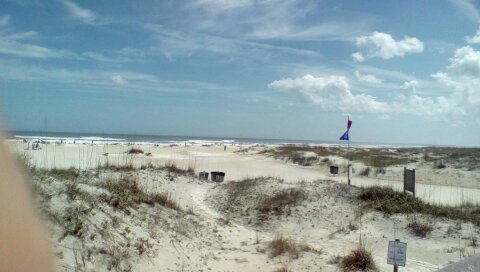
Spider Robinson published Callahan’s Key around the year 2000. Like all the other Callahan novels, it’s Spider’s own quirky brand of S/F. The book is mostly set in the Florida Keys, especially Key West. After reading the book my wife and I went on an extended trip down to the Keys. Spider’s book could have been used as a travel guide. It was pretty neat to see real places from the book.
I love books that use real world settings for fictional stories. Scott B. Williams set much of his Pulse series in waters I’ve sailed in. Ed Robinson’s Trawler Trash series is set in parts of Florida that I’m very familiar with.
Julian May’s Metaconcert series has many scenes that take place in my small isolated little hometown in northern New Hampshire. May changed the names of some of the businesses, but my town and the people were very recognizable.
So what does a fiction writer gain from cribbing their scenes from the real world? For one thing world building is a lot easier if the world is already there. No need to reinvent the wheel. It also makes the story a lot more real to the reader. Since the setting is real it makes it much easier for the reader to suspend disbelief.
Writers can use places they know well. Ed Robinson actually lives on a trawler, often anchored in Pelican Bay on the Gulf side of Florida. Williams has boated in the waters his books are set in.
I don’t know if Julian May has even been to my home town, but the writer didn’t have to go there. There are plenty of resources available. No need to live in a town when Google can show you what it looks like. Tourist guides are also useful resources. I suspect that May used a hiking guide as one resource because the description of certain hiking trails is dead on.
Using a place you know well is easy, but it doesn’t take all that much research to capture the feel of a place. It makes sense for a lot of fictional stories to be set in real places. There are downsides. If your story concerns something that happens in the streets of New York, you’d better get things right. If not about every third person who reads your book will discover the error.
All in all, the benefits outweigh the downsides. It’s one more tool in the writer’s tool kit.
-Raymond M. Coulombe
Leave a Reply